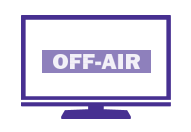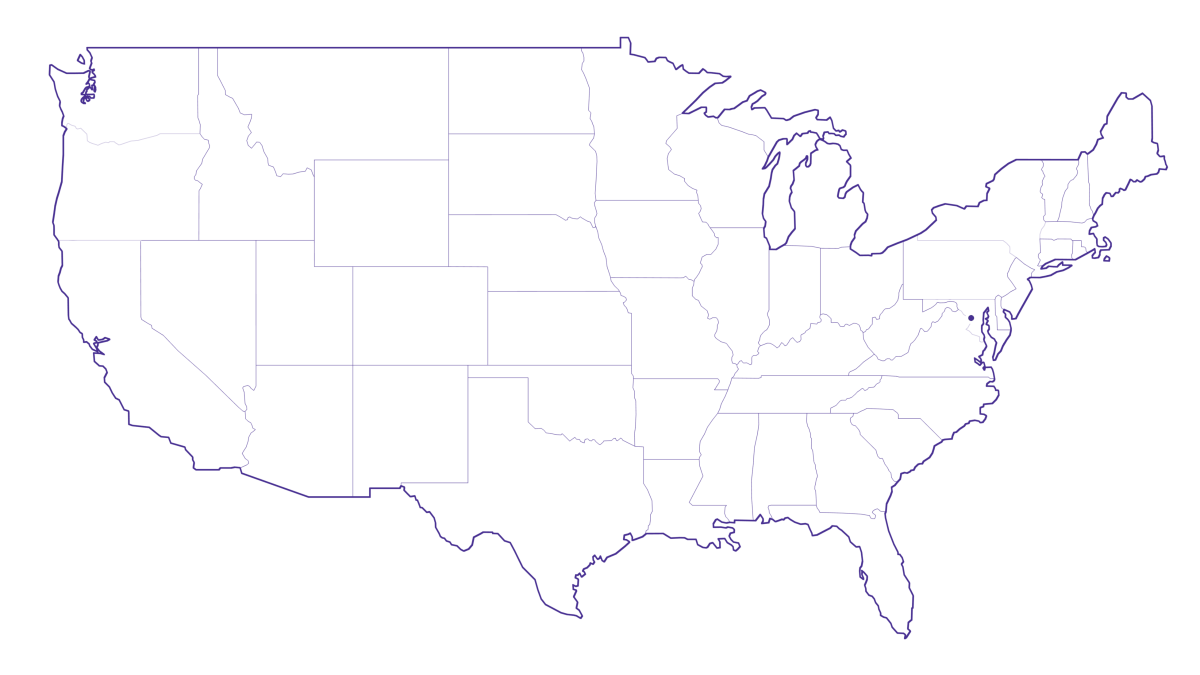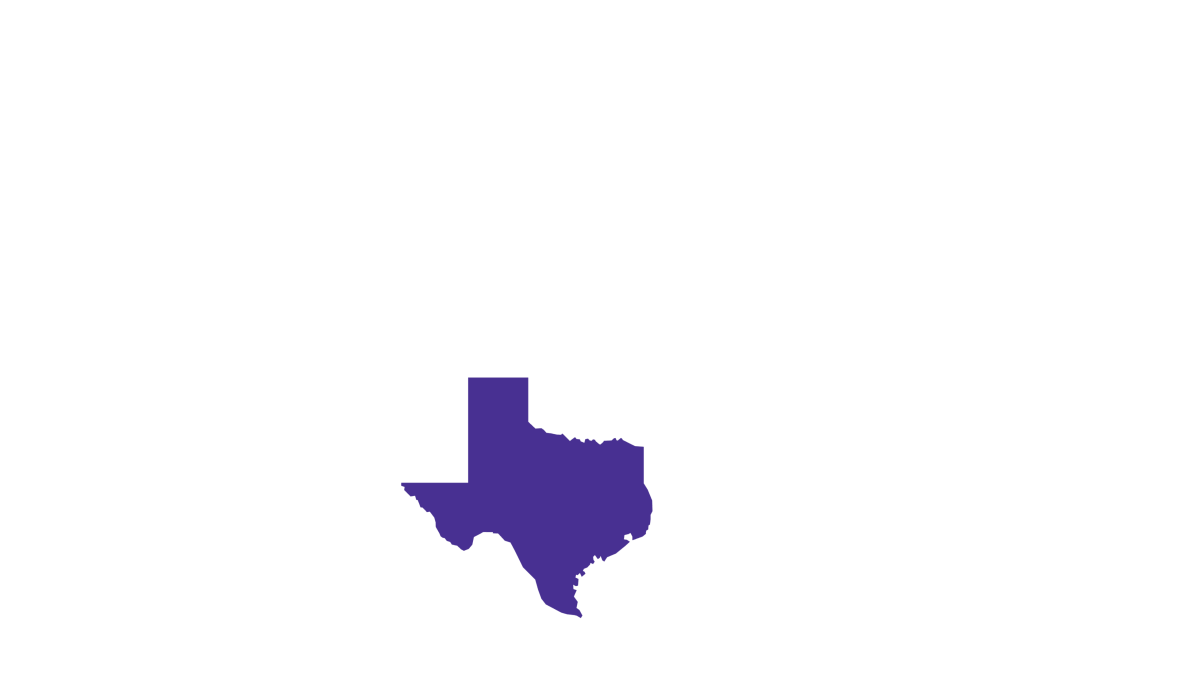At Astound Broadband, we are committed to doing everything we can to provide you with the best, most advanced services backed with award-winning customer care. Each of us works hard to ensure that you and the communities we serve have access to the fastest and most reliable Internet, TV and phone services. Each and every day, we endeavor to deliver high-quality services at a great value and have always aimed to put our customers first. We are transparent with our customers and want you to know what comprises the taxes, surcharges, and fees you see on your bill. Below, please find a summary of rate adjustments for specific fees; unless otherwise notated, the surcharges and/or fees listed are neither government mandated nor a tax, surcharge, or fee imposed by the government. They are either a surcharge and/or fee Astound Broadband assesses and retains.
Programming fees paid to entertainment networks and regional sports networks, in addition to retransmission consent fees demanded by local broadcasters, comprise one of the largest costs in our business. These fees have historically increased over time and continue to grow at an alarming rate.
To help offset the delivery of programming content, Astound Broadband has instituted specific fees and/or surcharges; unless otherwise notated, the surcharges and/or fees listed are neither government mandated nor a tax, surcharge, or fee imposed by the government. They are either a surcharge and/or fee Astound Broadband assesses and retains. For more information, please see the FAQs below.
We’ll continue working hard to bring you the most advanced services with outstanding customer support, while minimizing operating and programming costs. Led by a customer-focused vision, we’re dedicated to fulfilling your communication, entertainment and information needs.
Frequently asked questions
Frequently asked questions
Frequently asked questions
Frequently asked questions
Frequently asked questions
Frequently asked questions
What are the Taxes, Surcharges, and Fees?
Below please find a summary of the various taxes, surcharges, and fees. Unless otherwise notated, the listed taxes, surcharges, and/or fees are neither government mandated nor a tax, surcharge, or fee imposed on you by the government. They are either a surcharge and/or fee Astound Broadband (Astound) assesses and retains.
- Broadcast TV Surcharge is applied to all TV packages to help offset the costs of programming content and delivery of the local and regional broadcast television signals to our customers.
- Sports Surcharge is applied to those video customers who have Preferred TV, Premier or Sports Tiers to help offset the delivery and cost of programming associated with professional, collegiate and amateur games and other sports content.
- Entertainment Networks Surcharge is applied to all video customers with Preferred TV and above. This helps offset the costs associated with the programming and delivery of entertainment networks such as ABC/Disney, Comcast/NBC Universal, Paramount/CBS, Warner Bros. Discovery and others.
- Network Access and Maintenance Fee is applied to defray costs associated with building and maintaining Astound’s fiber rich broadband network, as well as the costs of expanding network capacity to support the continued increase in customers’ average broadband consumption.
- A Regulatory Administration Fee of 2% applies to recover the cost of complying with certain federal, state, and/or local impositions related to voice service. Cable and/or Internet customers who do not also have voice service are not included and will not see this surcharge. It is a monthly charge to defray a portion of the fees paid to support government programs such as Telecommunications Relay Service and Local Number Portability, along with other charges assessed by the FCC, and additional indirect costs associated with administering and complying with government programs.
- The Municipal Construction Surcharge (New York and Illinois) is applied to all cable and Internet customers, whether a la carte or in a bundle. Phone- only customers are not included and will not see this surcharge. This surcharge is designed to recover a portion of the expenses Astound Broadband incurs from government mandated relocation of its facilities that are in the public rights-of-way to prevent interference with street repairs, public construction projects or other activities required for public health, safety or convenience.
Periodically, franchise, utility, PEG fees and other government mandated fees and taxes are also adjusted in keeping with regulatory requirements. These fees and taxes are government mandated, pass-through fees that we are required to remit to applicable governmental authorities.
For a complete listing of Taxes, Surcharges, and Fees in your area, please refer to your monthly invoice or click here.
Do I have to pay the Broadcast TV Surcharge if I only have Basic TV?
Yes. If you subscribe to Basic TV only and no other video packages or tiers, you will pay the Broadcast TV Surcharge. The local broadcast stations levy a monthly fee for carriage of their content; this fee helps offset those costs.
Do I have to pay the Sports or Entertainment Networks Surcharge if I only have Basic TV?
No. If you subscribe to Basic TV only and no other video packages or tiers, the Sports or Entertainment Network Surcharge will not be assessed on your monthly bill.
Are the surcharges and fees a government mandated tax or fee?
The surcharges and fees (Broadcast TV Surcharge, Sports Surcharge, Entertainment Networks Surcharge, Network Access and Maintenance Fee and the Municipal Construction Surcharge) are not imposed by the government and are subject to change. They are surcharges and fees that Astound assesses and retains. These surcharges and fees are not franchise fees, and are not imposed by local franchising authorities (municipalities) as compensation for Astound’s use of the public right-of-ways or easements. These surcharges and fees are also not taxes that Astound collects on behalf of local, state, and federal governments.
Is this cost different from what I have been paying for in the past?
The monthly rate for cable TV is based on fees paid for TV programming and the cost of operating and maintaining the cable TV system so that our signals can reach subscribers’ homes with quality and reliability. We are continually improving and upgrading our network to meet the growing needs of our customers. We have invested millions in our network and services in 2024 and will continue to invest in 2025.
While we pledge to hold prices as low as possible, annual adjustments are necessary because of the rising cost of TV programming – specific to broadcast, sports and entertainment networks.
In recent years, broadcasters and network owners have become very aggressive, demanding increasingly larger payments for carriage of their “must see” network shows and their family of networks when historically most channels were available at much lower costs to consumers and the cable TV provider.
Why do I have to pay for Broadcast TV if I can get it free with an antenna?
Broadcast TV stations distribute their signals over the air, using free spectrum granted to them by the federal government. In effect, taxpayers are subsidizing the distribution of broadcast, or “network-affiliated,” TV signals. These same broadcast TV stations are then allowed by the government to charge cable and satellite companies for their signals — and if we (the cable operator) don’t agree to pay, broadcasters will drop their channels from your lineup, thereby adversely impacting our customers. Historically, these fees were made available to us at low cost or no cost. This is no longer the case — cable TV operators are forced to pay rapidly escalating fees demanded by the broadcast TV network owners.
I don’t watch sports channels. Why must I pay this Sports Surcharge?
Sporting events are not limited to sports networks such as ESPN, MLB Network, NHL Network or other sports-centric channels. The rates we pay for non-sports networks are also affected by sports programming. General entertainment channels such as TBS, TNT and USA carry live sports in addition to non-sports entertainment programming. In total, more than 30 channels on your lineup carry live sports – and their rates are all affected by the increasing cost of sports programming and the delivery of these channels.
I don’t watch all of these networks. Why must I pay for all of them?
- Carrying individual channels instead of a network owner’s entire “family of networks” is not an option that programmers offer to cable TV providers like Astound. We are forced to carry ALL networks from a given network owner.
- Most carriage agreements require cable TV providers to pay large programming rate hikes or forgo carriage of all networks — with no in-between option.
- Network owners have also forced cable TV providers to carry channels on specific tiers as part of the agreement, which drives costs higher.
- Networks are also forcing higher fees on cable TV providers for TV Everywhere and On Demand carriage as part of carriage agreements.
- Cable TV providers are required to pay a fee for every household who receives that channel, regardless of whether anyone in that household even watches the channel.
Why do network owners do this?
Network owners want to ensure lower viewed networks get distribution and therefore earn more advertising revenue for network owners.
I don’t need/want all of these networks. What can I do?
Visit the websites below and find out how to write to your Congressman or Senator and let them know your feelings. They put these regulations into effect and only they can change them.
What is the history behind Cable TV?
Over the past 65 years, Cable TV has gone through a series of transitions, technologically and legally:
| 1948 |  Cable television first became available in the US in 1948, with subscription services to relay over-the-air commercial broadcasting television channels. Cable television first became available in the US in 1948, with subscription services to relay over-the-air commercial broadcasting television channels. |
| 1948 – 1972 |  Cable Television extends the geographic reach of over- the-air television stations and provides for consistently good quality reception not available with a rooftop antenna or rabbit ears. Cable Television extends the geographic reach of over- the-air television stations and provides for consistently good quality reception not available with a rooftop antenna or rabbit ears. |
| 1972 |  The FCC implements the “Must Carry Rule”. The Must- Carry rule mandates that cable companies carry the signals of all local broadcasters within a 60-mile area. The FCC implements the “Must Carry Rule”. The Must- Carry rule mandates that cable companies carry the signals of all local broadcasters within a 60-mile area. |
| 1992 |  The FCC passes the Retransmission Act of 1992, giving broadcast stations a choice of requiring cable companies to carry them under the must-carry rules or negotiating with cable companies for compensation to carry their broadcast signals. The FCC passes the Retransmission Act of 1992, giving broadcast stations a choice of requiring cable companies to carry them under the must-carry rules or negotiating with cable companies for compensation to carry their broadcast signals. |
| 1992 – 2005 |  Cable TV providers generally resisted broadcaster demands for cash compensation on the grounds that the programming was available “off-air” for free. Cable TV providers generally resisted broadcaster demands for cash compensation on the grounds that the programming was available “off-air” for free. |
| 2005 – 2010 |  Broadcasters and networks increase demands for cash compensation for programming carriage and occasionally remove a channel from cable TV providers when fees are in dispute. Broadcasters and networks increase demands for cash compensation for programming carriage and occasionally remove a channel from cable TV providers when fees are in dispute. |
| 2011 – PRESENT |  Broadcasters and networks demand gigantic fee increases from cable TV providers such as Astound Broadband – as much as 300%! TV stations and networks engage in several public disputes resulting in customer blackouts. Broadcasters and networks demand gigantic fee increases from cable TV providers such as Astound Broadband – as much as 300%! TV stations and networks engage in several public disputes resulting in customer blackouts. |
What is "Retransmission Consent"?
Retransmission consent refers to a provision of the 1992 United States Cable Television Protection and Competition Act that requires cable operators and other multi-channel video programming distributors to obtain permission from broadcasters before carrying their programming. In exchange, a broadcaster may propose that the cable operator pay cash to carry the station or ask for other forms of consideration. The cable operator may refuse the broadcaster’s proposal and the broadcaster can withhold permission for the cable operator to carry the programming. It boils down to a negotiation to arrive at an equitable agreement for all parties.
Unlike cable TV networks, broadcast TV stations distribute their signals over the air, using free spectrum granted to them by the federal government. In effect, taxpayers subsidize the distribution of broadcast TV signals. These same broadcast TV stations are then allowed by the government to charge cable and satellite distributors for their signals — and if we don’t agree to pay, broadcasters can force us to drop their channels. It’s all part of a process known as “retransmission consent negotiations.”
Without the written consent of the local broadcast station ownership, cable and satellite companies are not allowed by law to carry those signals.
Twenty years later, the competitive environment for cable TV providers has changed dramatically. Companies that own the local broadcast TV stations are increasingly demanding huge demands for cash that drive up a cable, satellite, or telephone company’s costs of doing business, and this pricing ultimately affects customers. Cable TV providers cannot absorb these rapidly escalating fees paid to networks and sports channels, plus retransmission fees from local broadcasters. These fees comprise the largest costs in our business and are growing the fastest.
What are the fees?
Unless otherwise noted, the listed fees below are neither government mandated nor a tax, surcharge, or fee imposed on you by the government. They are a fee Astound Broadband assesses and retains.
- Network Access and Maintenance Fee helps defray costs associated with building and maintaining Astound Broadband’s fiber rich symmetrical broadband network, as well as the costs of expanding network capacity to support the continued increase in customers’ average broadband consumption.
The Network Access and Maintenance Fee is not imposed by the government and is subject to change. It is a fee that Astound Broadband assesses and retains. This fee is not a franchise fee, which is imposed by local franchising authorities (municipalities) as compensation for Astound Broadband’s use of the public right-of-ways or easements. This fee is also not a tax, which Astound Broadband collects on behalf of local, state, and federal governments.
- A Regulatory Administration Fee of 2% applies to recover the cost of complying with certain federal, state, and/or local impositions related to voice service. It is a monthly charge to defray a portion of the fees paid to support government programs such as Telecommunications Relay Service and Local Number Portability, along with other charges assessed by the FCC, and additional indirect costs associated with administering and complying with government programs. Periodically, franchise, utility, PEG fees and other government mandated fees and taxes are also adjusted in keeping with regulatory requirements. These fees and taxes are government mandated and we are required to comply.
Periodically, franchise, utility, PEG fees and other government mandated fees and taxes are also adjusted in keeping with regulatory requirements. These fees and taxes are government mandated, pass-through fees that we are required to remit to applicable governmental authorities.
For a complete listing of Taxes, Surcharges, and Fees in your area, please refer to your monthly invoice or click here.
Is this cost different from what I have been paying for in the past?
The monthly rate for cable TV is based on fees paid for TV programming and the cost of operating and maintaining the cable TV system so that our signals can reach subscribers’ homes with quality and reliability. We are continually improving and upgrading our network to meet the growing needs of our customers. We have invested millions in our network and services in 2024 and will continue to invest in 2025.
While we pledge to hold prices as low as possible, annual adjustments are necessary because of the rising cost of TV programming – specific to broadcast, sports and entertainment networks.
In recent years, broadcasters and network owners have become very aggressive, demanding increasingly larger payments for carriage of their “must-see” network shows and their family of networks when historically most channels were available at much lower costs to consumers and the cable TV provider.
I don’t watch all of the networks on my channel lineup. Why must I pay for all of them?
Carrying individual channels instead of a network owner’s entire “family of networks” is not an option offered to cable TV providers like Astound Broadband. We are forced to carry ALL networks from a given network owner.
- Most carriage agreements require cable TV providers to pay large programming rate hikes or forgo carriage of all networks — with no in-between option.
- Network owners have also forced cable TV providers to carry channels on specific tiers as part of the agreement, which drives costs higher.
- Networks are also forcing higher fees on cable TV providers for TV Everywhere and On Demand carriage as part of carriage agreements.
- Cable TV providers are required to pay a fee for every household who receives that channel, regardless of whether anyone in that household even watches the channel.
Why do network owners do this?
Network owners want to ensure lower viewed networks get distribution and therefore earn more advertising revenue for network owners.
I don’t need/want all of these networks. What can I do?
Visit the websites below and find out how to write to your Congressman or Senator and let them know your feelings. They put these regulations into effect and only they can change them.
What is the history behind Cable TV?
Over the past 65 years, Cable TV has gone through a series of transitions, technologically and legally:
| 1948 |  Cable television first became available in the US in 1948, with subscription services to relay over-the-air commercial broadcasting television channels. Cable television first became available in the US in 1948, with subscription services to relay over-the-air commercial broadcasting television channels. |
| 1948 – 1972 |  Cable Television extends the geographic reach of over- the-air television stations and provides for consistently good quality reception not available with a rooftop antenna or rabbit ears. Cable Television extends the geographic reach of over- the-air television stations and provides for consistently good quality reception not available with a rooftop antenna or rabbit ears. |
| 1972 |  The FCC implements the “Must Carry Rule”. The Must- Carry rule mandates that cable companies carry the signals of all local broadcasters within a 60-mile area. The FCC implements the “Must Carry Rule”. The Must- Carry rule mandates that cable companies carry the signals of all local broadcasters within a 60-mile area. |
| 1992 |  The FCC passes the Retransmission Act of 1992, giving broadcast stations a choice of requiring cable companies to carry them under the must-carry rules or negotiating with cable companies for compensation to carry their broadcast signals. The FCC passes the Retransmission Act of 1992, giving broadcast stations a choice of requiring cable companies to carry them under the must-carry rules or negotiating with cable companies for compensation to carry their broadcast signals. |
| 1992 – 2005 |  Cable TV providers generally resisted broadcaster demands for cash compensation on the grounds that the programming was available “off-air” for free. Cable TV providers generally resisted broadcaster demands for cash compensation on the grounds that the programming was available “off-air” for free. |
| 2005 – 2010 |  Broadcasters and networks increase demands for cash compensation for programming carriage and occasionally remove a channel from cable TV providers when fees are in dispute. Broadcasters and networks increase demands for cash compensation for programming carriage and occasionally remove a channel from cable TV providers when fees are in dispute. |
| 2011 – PRESENT |  Broadcasters and networks demand gigantic fee increases from cable TV providers such as Astound Broadband – as much as 300%! TV stations and networks engage in several public disputes resulting in customer blackouts. Broadcasters and networks demand gigantic fee increases from cable TV providers such as Astound Broadband – as much as 300%! TV stations and networks engage in several public disputes resulting in customer blackouts. |
What is "Retransmission Consent"?
Retransmission consent refers to a provision of the 1992 United States Cable Television Protection and Competition Act that requires cable operators and other multi-channel video programming distributors to obtain permission from broadcasters before carrying their programming. In exchange, a broadcaster may propose that the cable operator pay cash to carry the station or ask for other forms of consideration. The cable operator may refuse the broadcaster’s proposal and the broadcaster can withhold permission for the cable operator to carry the programming. It boils down to a negotiation to arrive at an equitable agreement for all parties.
Unlike cable TV networks, broadcast TV stations distribute their signals over the air, using free spectrum granted to them by the federal government. In effect, taxpayers subsidize the distribution of broadcast TV signals. These same broadcast TV stations are then allowed by the government to charge cable and satellite distributors for their signals — and if we don’t agree to pay, broadcasters can force us to drop their channels. It’s all part of a process known as “retransmission consent negotiations.”
Without the written consent of the local broadcast station ownership, cable and satellite companies are not allowed by law to carry those signals.
Twenty years later, the competitive environment for cable TV providers has changed dramatically. Companies that own the local broadcast TV stations are increasingly demanding huge demands for cash that drive up a cable, satellite, or telephone company’s costs of doing business, and this pricing ultimately affects customers. Cable TV providers cannot absorb these rapidly escalating fees paid to networks and sports channels, plus retransmission fees from local broadcasters. These fees comprise the largest costs in our business and are growing the fastest.
What are the Taxes, Surcharges, and Fees?
Below please find a summary of the various taxes, surcharges, and fees. Unless otherwise notated, the listed taxes, surcharges, and/or fees are neither government mandated nor a tax, surcharge, or fee imposed on you by the government. They are either a surcharge and/or fee Astound Broadband (Astound) assesses and retains.
- Broadcast TV Surcharge is applied to all TV packages to help offset the costs of programming content and delivery of the local and regional broadcast television signals to our customers.
- Sports Surcharge is applied to those video customers who have Preferred TV/Medium TV Tiers, Premiere TV/Large TV Tier and/or Sports Packages/Tiers to help offset the delivery and cost of programming associated with professional, collegiate and amateur games and other sports content.
- Entertainment Networks Surcharge is applied to all video customers with Preferred TV/Medium TV and above. This helps offset the costs associated with the programming and delivery of entertainment networks such as ABC/Disney, Comcast/NBC Universal, Paramount/CBS, Warner Bros. Discovery and others.
- Network Access and Maintenance Fee is applied to defray costs associated with building and maintaining Astound’s fiber rich broadband network, as well as the costs of expanding network capacity to support the continued increase in customers’ average broadband consumption.
- A Regulatory Administration Fee of 2% applies to recover the cost of complying with certain federal, state, and/or local impositions related to voice service. Cable and/or Internet customers who do not also have voice service are not included and will not see this surcharge. It is a monthly charge to defray a portion of the fees paid to support government programs such as Telecommunications Relay Service and Local Number Portability, along with other charges assessed by the FCC, and additional indirect costs associated with administering and complying with government programs.
- The Municipal Construction Surcharge (Illinois) is applied to all cable and Internet customers, whether a la carte or in a bundle. Phone- only customers are not included and will not see this surcharge. This surcharge is designed to recover a portion of the expenses Astound Broadband incurs from government mandated relocation of its facilities that are in the public rights-of-way to prevent interference with street repairs, public construction projects or other activities required for public health, safety or convenience.
Periodically, franchise, utility, PEG fees and other government mandated fees and taxes are also adjusted in keeping with regulatory requirements. These fees and taxes are government mandated, pass-through fees that we are required to remit to applicable governmental authorities.
For a complete listing of Taxes, Surcharges, and Fees in your area, please refer to your monthly invoice or click here.
Do I have to pay the Broadcast TV Surcharge if I only have Basic TV?
Yes. If you subscribe to the Basic TV/Small TV Tier only and no other video packages or tiers, you will pay the Broadcast TV Surcharge. The local broadcast stations levy a monthly fee for carriage of their content; this fee helps offset those costs.
Do I have to pay the Sports or Entertainment Networks Surcharge if I only have Basic TV?
No. If you subscribe to Basic TV/Small TV only and no other video packages or tiers, the Sports or Entertainment Network Surcharge will not be assessed on your monthly bill.
Are the surcharges and fees a government mandated tax or fee?
The surcharges and fees (Broadcast TV Surcharge, Sports Surcharge, Entertainment Networks Surcharge, Network Access and Maintenance Fee and the Municipal Construction Surcharge) are not imposed by the government and are subject to change. They are surcharges and fees that Astound assesses and retains. These surcharges and fees are not franchise fees, and are not imposed by local franchising authorities (municipalities) as compensation for Astound’s use of the public right-of-ways or easements. These surcharges and fees are also not taxes that Astound collects on behalf of local, state, and federal governments.
Is this cost different from what I have been paying for in the past?
The monthly rate for cable TV is based on fees paid for TV programming and the cost of operating and maintaining the cable TV system so that our signals can reach subscribers’ homes with quality and reliability. We are continually improving and upgrading our network to meet the growing needs of our customers. We have invested millions in our network and services in 2024 and will continue to invest in 2025.
While we pledge to hold prices as low as possible, annual adjustments are necessary because of the rising cost of TV programming – specific to broadcast, sports and entertainment networks.
In recent years, broadcasters and network owners have become very aggressive, demanding increasingly larger payments for carriage of their “must see” network shows and their family of networks when historically most channels were available at much lower costs to consumers and the cable TV provider.
Why do I have to pay for Broadcast TV if I can get it free with an antenna?
Broadcast TV stations distribute their signals over the air, using free spectrum granted to them by the federal government. In effect, taxpayers are subsidizing the distribution of broadcast, or “network-affiliated,” TV signals. These same broadcast TV stations are then allowed by the government to charge cable and satellite companies for their signals — and if we (the cable operator) don’t agree to pay, broadcasters will drop their channels from your lineup, thereby adversely impacting our customers. Historically, these fees were made available to us at low cost or no cost. This is no longer the case — cable TV operators are forced to pay rapidly escalating fees demanded by the broadcast TV network owners.
I don’t watch sports channels. Why must I pay this Sports Surcharge?
Sporting events are not limited to sports networks such as ESPN, MLB Network, NHL Network or other sports-centric channels. The rates we pay for non-sports networks are also affected by sports programming. General entertainment channels such as TBS, TNT and USA carry live sports in addition to non-sports entertainment programming. In total, more than 30 channels on your lineup carry live sports – and their rates are all affected by the increasing cost of sports programming and the delivery of these channels.
I don’t watch all of these networks. Why must I pay for all of them?
- Carrying individual channels instead of a network owner’s entire “family of networks” is not an option that programmers offer to cable TV providers like Astound. We are forced to carry ALL networks from a given network owner.
- Most carriage agreements require cable TV providers to pay large programming rate hikes or forgo carriage of all networks — with no in-between option.
- Network owners have also forced cable TV providers to carry channels on specific tiers as part of the agreement, which drives costs higher.
- Networks are also forcing higher fees on cable TV providers for TV Everywhere and On Demand carriage as part of carriage agreements.
- Cable TV providers are required to pay a fee for every household who receives that channel, regardless of whether anyone in that household even watches the channel.
Why do network owners do this?
Network owners want to ensure lower viewed networks get distribution and therefore earn more advertising revenue for network owners.
I don’t need/want all of these networks. What can I do?
Visit the websites below and find out how to write to your Congressman or Senator and let them know your feelings. They put these regulations into effect and only they can change them.
What is the history behind Cable TV?
Over the past 65 years, Cable TV has gone through a series of transitions, technologically and legally:
| 1948 |  Cable television first became available in the US in 1948, with subscription services to relay over-the-air commercial broadcasting television channels. Cable television first became available in the US in 1948, with subscription services to relay over-the-air commercial broadcasting television channels. |
| 1948 – 1972 |  Cable Television extends the geographic reach of over- the-air television stations and provides for consistently good quality reception not available with a rooftop antenna or rabbit ears. Cable Television extends the geographic reach of over- the-air television stations and provides for consistently good quality reception not available with a rooftop antenna or rabbit ears. |
| 1972 |  The FCC implements the “Must Carry Rule”. The Must- Carry rule mandates that cable companies carry the signals of all local broadcasters within a 60-mile area. The FCC implements the “Must Carry Rule”. The Must- Carry rule mandates that cable companies carry the signals of all local broadcasters within a 60-mile area. |
| 1992 |  The FCC passes the Retransmission Act of 1992, giving broadcast stations a choice of requiring cable companies to carry them under the must-carry rules or negotiating with cable companies for compensation to carry their broadcast signals. The FCC passes the Retransmission Act of 1992, giving broadcast stations a choice of requiring cable companies to carry them under the must-carry rules or negotiating with cable companies for compensation to carry their broadcast signals. |
| 1992 – 2005 |  Cable TV providers generally resisted broadcaster demands for cash compensation on the grounds that the programming was available “off-air” for free. Cable TV providers generally resisted broadcaster demands for cash compensation on the grounds that the programming was available “off-air” for free. |
| 2005 – 2010 |  Broadcasters and networks increase demands for cash compensation for programming carriage and occasionally remove a channel from cable TV providers when fees are in dispute. Broadcasters and networks increase demands for cash compensation for programming carriage and occasionally remove a channel from cable TV providers when fees are in dispute. |
| 2011 – PRESENT |  Broadcasters and networks demand gigantic fee increases from cable TV providers such as Astound Broadband – as much as 300%! TV stations and networks engage in several public disputes resulting in customer blackouts. Broadcasters and networks demand gigantic fee increases from cable TV providers such as Astound Broadband – as much as 300%! TV stations and networks engage in several public disputes resulting in customer blackouts. |
What is "Retransmission Consent"?
Retransmission consent refers to a provision of the 1992 United States Cable Television Protection and Competition Act that requires cable operators and other multi-channel video programming distributors to obtain permission from broadcasters before carrying their programming. In exchange, a broadcaster may propose that the cable operator pay cash to carry the station or ask for other forms of consideration. The cable operator may refuse the broadcaster’s proposal and the broadcaster can withhold permission for the cable operator to carry the programming. It boils down to a negotiation to arrive at an equitable agreement for all parties.
Unlike cable TV networks, broadcast TV stations distribute their signals over the air, using free spectrum granted to them by the federal government. In effect, taxpayers subsidize the distribution of broadcast TV signals. These same broadcast TV stations are then allowed by the government to charge cable and satellite distributors for their signals — and if we don’t agree to pay, broadcasters can force us to drop their channels. It’s all part of a process known as “retransmission consent negotiations.”
Without the written consent of the local broadcast station ownership, cable and satellite companies are not allowed by law to carry those signals.
Twenty years later, the competitive environment for cable TV providers has changed dramatically. Companies that own the local broadcast TV stations are increasingly demanding huge demands for cash that drive up a cable, satellite, or telephone company’s costs of doing business, and this pricing ultimately affects customers. Cable TV providers cannot absorb these rapidly escalating fees paid to networks and sports channels, plus retransmission fees from local broadcasters. These fees comprise the largest costs in our business and are growing the fastest.
What are the Taxes, Surcharges, and Fees?
Below please find a summary of the various taxes, surcharges, and fees. Unless otherwise notated, the listed taxes, surcharges, and/or fees are neither government mandated nor a tax, surcharge, or fee imposed on you by the government. They are either a surcharge and/or fee Astound Broadband (Astound) assesses and retains.
- Broadcast TV Surcharge/Broadcast Retransmission Fee is applied to all TV packages to help offset the costs of programming content and delivery of the local and regional broadcast television signals to our customers.
- Sports Surcharge is applied to those video customers who have Basic TV Tier and Higher to help offset the delivery and cost of programming associated with professional, collegiate and amateur games and other sports content.
- Entertainment Networks Surcharge is applied to all video customers with Basic TV and above. This helps offset the costs associated with the programming and delivery of entertainment networks such as ABC/Disney, Comcast/NBC Universal, Paramount/CBS, Warner Bros. Discovery and others.
- Network Access and Maintenance Fee is applied to defray costs associated with building and maintaining Astound’s fiber rich broadband network, as well as the costs of expanding network capacity to support the continued increase in customers’ average broadband consumption.
- A Regulatory Administration Fee of 2% applies to recover the cost of complying with certain federal, state, and/or local impositions related to voice service. Cable and/or Internet customers who do not also have voice service are not included and will not see this surcharge. It is a monthly charge to defray a portion of the fees paid to support government programs such as Telecommunications Relay Service and Local Number Portability, along with other charges assessed by the FCC, and additional indirect costs associated with administering and complying with government programs.
Periodically, franchise, utility, PEG fees and other government mandated fees and taxes are also adjusted in keeping with regulatory requirements. These fees and taxes are government mandated, pass-through fees that we are required to remit to applicable governmental authorities.
For a complete listing of Taxes, Surcharges, and Fees in your area, please refer to your monthly invoice or click here.
Are the Surcharges and fees a government mandated tax or fee?
The surcharges and fees (Broadcast Retransmission Fee, Sports Surcharge, Entertainment Networks Surcharge, HD Technology Fee, Network Access & Maintenance Fee and Regulatory Administration fee) are not imposed by the government and are subject to change. They are surcharges and fees that Astound assesses and retains. These surcharges and fees are not franchise fees, and are not imposed by local franchising authorities (municipalities) as compensation for Astound’s use of the public right-of-ways or easements. These surcharges and fees are also not taxes that Astound collects on behalf of local, state, and federal governments.
Is this cost different from what I have been paying for in the past?
The monthly rate for cable TV is based on fees paid for TV programming and the cost of operating and maintaining the cable TV system so that our signals can reach subscribers’ homes with quality and reliability. We are continually improving and upgrading our network to meet the growing needs of our customers. We have invested millions in our network and services in 2024 and will continue to invest in 2025.
While we pledge to hold prices as low as possible, annual adjustments are necessary because of the rising cost of TV programming – specific to broadcast, sports and entertainment networks.
In recent years, broadcasters and network owners have become very aggressive, demanding increasingly larger payments for carriage of their “must see” network shows and their family of networks when historically most channels were available at much lower costs to consumers and the cable TV provider.
Why do I have to pay for the Broadcast TV Surcharge/Broadcast Retransmission Fee if I can get it free with an antenna?
Broadcast TV stations distribute their signals over the air, using free spectrum granted to them by the federal government. In effect, taxpayers are subsidizing the distribution of broadcast, or “network-affiliated,” TV signals. These same broadcast TV stations are then allowed by the government to charge cable and satellite companies for their signals — and if we (the cable operator) don’t agree to pay, broadcasters will drop their channels from your lineup, thereby adversely impacting our customers. Historically, these fees were made available to us at low cost or no cost. This is no longer the case — cable TV operators are forced to pay rapidly escalating fees demanded by the broadcast TV network owners.
I don’t watch sports channels. Why must I pay this Sports Surcharge?
Sporting events are not limited to sports networks such as ESPN, MLB Network, NHL Network or other sports-centric channels. The rates we pay for non-sports networks are also affected by sports programming. General entertainment channels such as TBS, TNT and USA, carry live sports in addition to non-sports entertainment programming. In total, more than 30 channels on your lineup carry live sports – and their rates are all affected by the increasing cost of sports programming and the delivery of these channels.
- Carrying individual channels instead of a network owner’s entire “family of networks” is not an option that programmers offer to cable TV providers like Astound. We are forced to carry ALL networks from a given network owner.
- Most carriage agreements require cable TV providers to pay large programming rate hikes or forgo carriage of all networks — with no in between option.
- Network owners have also forced cable TV providers to carry channels on specific tiers as part of the agreement, which drives costs higher.
- Networks are also forcing higher fees on cable TV providers for TV Everywhere and On Demand carriage as part of carriage agreements.
- Cable TV providers are required to pay a fee for every household who receives that channel, regardless of whether anyone in that household even watches the channel.
Why do network owners do this?
To ensure lower viewed networks get distribution and therefore, earn more advertising revenue for network owners.
I don’t need/want all of these networks. What can I do?
Visit the websites below and find out how to write to your Congressman or Senator and let them know your feelings. They put these regulations into effect and only they can change them.
What is the history behind Cable TV?
Over the past 65 years, Cable TV has gone through a series of transitions, technologically and legally:
| 1948 |  Cable television first became available in the US in 1948, with subscription services to relay over-the-air commercial broadcasting television channels. Cable television first became available in the US in 1948, with subscription services to relay over-the-air commercial broadcasting television channels. |
| 1948 – 1972 |  Cable Television extends the geographic reach of over- the-air television stations and provides for consistently good quality reception not available with a rooftop antenna or rabbit ears. Cable Television extends the geographic reach of over- the-air television stations and provides for consistently good quality reception not available with a rooftop antenna or rabbit ears. |
| 1972 |  The FCC implements the “Must Carry Rule”. The Must- Carry rule mandates that cable companies carry the signals of all local broadcasters within a 60-mile area. The FCC implements the “Must Carry Rule”. The Must- Carry rule mandates that cable companies carry the signals of all local broadcasters within a 60-mile area. |
| 1992 |  The FCC passes the Retransmission Act of 1992, giving broadcast stations a choice of requiring cable companies to carry them under the must-carry rules or negotiating with cable companies for compensation to carry their broadcast signals. The FCC passes the Retransmission Act of 1992, giving broadcast stations a choice of requiring cable companies to carry them under the must-carry rules or negotiating with cable companies for compensation to carry their broadcast signals. |
| 1992 – 2005 |  Cable TV providers generally resisted broadcaster demands for cash compensation on the grounds that the programming was available “off-air” for free. Cable TV providers generally resisted broadcaster demands for cash compensation on the grounds that the programming was available “off-air” for free. |
| 2005 – 2010 |  Broadcasters and networks increase demands for cash compensation for programming carriage and occasionally remove a channel from cable TV providers when fees are in dispute. Broadcasters and networks increase demands for cash compensation for programming carriage and occasionally remove a channel from cable TV providers when fees are in dispute. |
| 2011 – PRESENT |  Broadcasters and networks demand gigantic fee increases from cable TV providers such as Astound Broadband – as much as 300%! TV stations and networks engage in several public disputes resulting in customer blackouts. Broadcasters and networks demand gigantic fee increases from cable TV providers such as Astound Broadband – as much as 300%! TV stations and networks engage in several public disputes resulting in customer blackouts. |
What is "Retransmission Consent"?
Retransmission consent refers to a provision of the 1992 United States Cable Television Protection and Competition Act that requires cable operators and other multi-channel video programming distributors to obtain permission from broadcasters before carrying their programming. In exchange, a broadcaster may propose that the cable operator pay cash to carry the station or ask for other forms of consideration. The cable operator may refuse the broadcaster’s proposal and the broadcaster can withhold permission for the cable operator to carry the programming. It boils down to a negotiation to arrive at an equitable agreement for all parties.
Unlike cable TV networks, broadcast TV stations distribute their signals over the air, using free spectrum granted to them by the federal government. In effect, taxpayers subsidize the distribution of broadcast TV signals. These same broadcast TV stations are then allowed by the government to charge cable and satellite distributors for their signals — and if we don’t agree to pay, broadcasters can force us to drop their channels. It’s all part of a process known as “retransmission consent negotiations.”
Without the written consent of the local broadcast station ownership, cable and satellite companies are not allowed by law to carry those signals.
Twenty years later, the competitive environment for cable TV providers has changed dramatically. Companies that own the local broadcast TV stations are increasingly demanding huge demands for cash that drive up a cable, satellite, or telephone company’s costs of doing business, and this pricing ultimately affects customers. Cable TV providers cannot absorb these rapidly escalating fees paid to networks and sports channels, plus retransmission fees from local broadcasters. These fees comprise the largest costs in our business and are growing the fastest.
What are the Taxes, Surcharges, and Fees?
Below please find a summary of the various taxes, surcharges, and fees. Unless otherwise notated, the listed taxes, surcharges, and/or fees are neither government mandated nor a tax, surcharge, or fee imposed on you by the government. They are either a surcharge and/or fee Astound Broadband (Astound) assesses and retains.
- Broadcast TV Surcharge is applied to all TV packages to help offset the costs of programming content and delivery of the local and regional broadcast television signals to our customers.
- Sports Surcharge is applied to those video customers who have Preferred TV, Premier or Sports Tiers to help offset the delivery and cost of programming associated with professional, collegiate and amateur games and other sports content.
- Entertainment Networks Surcharge is applied to all video customers with Preferred TV and above. This helps offset the costs associated with the programming and delivery of entertainment networks such as ABC/Disney, Comcast/NBC Universal, Paramount/CBS, Warner Bros. Discovery and others.
- Network Access and Maintenance Fee is applied to defray costs associated with building and maintaining Astound’s fiber rich broadband network, as well as the costs of expanding network capacity to support the continued increase in customers’ average broadband consumption.
- A Regulatory Administration Fee of 2% applies to recover the cost of complying with certain federal, state, and/or local impositions related to voice service. Cable and/or Internet customers who do not also have voice service are not included and will not see this surcharge. It is a monthly charge to defray a portion of the fees paid to support government programs such as Telecommunications Relay Service and Local Number Portability, along with other charges assessed by the FCC, and additional indirect costs associated with administering and complying with government programs.
Periodically, franchise, utility, PEG fees and other government mandated fees and taxes are also adjusted in keeping with regulatory requirements. These fees and taxes are government mandated, pass-through fees that we are required to remit to applicable governmental authorities.
For a complete listing of Taxes, Surcharges, and Fees in your area, please refer to your monthly invoice or click here.
Do I have to pay the Broadcast TV Surcharge if I only have Basic TV?
Yes. If you subscribe to Basic TV only and no other video packages or tiers, you will pay the Broadcast TV Surcharge. The local broadcast stations levy a monthly fee for carriage of their content; this fee helps offset those costs.
Do I have to pay the Sports or Entertainment Networks Surcharge if I only have Basic TV?
No. If you subscribe to Basic TV only and no other video packages or tiers, the Sports or Entertainment Network Surcharge will not be assessed to your monthly bill.
Are the surcharges and fees a government mandated tax or fee?
The surcharges and fees (Broadcast TV Surcharge, Sports Surcharge, Entertainment Networks Surcharge, Network Access & Maintenance Fee and Regulatory Administration fee) are not imposed by the government and are subject to change. They are surcharges and fees that Astound assesses and retains. These surcharges and fees are not franchise fees, and are not imposed by local franchising authorities (municipalities) as compensation for Astound’s use of the public right-of-ways or easements. These surcharges and fees are also not taxes that Astound collects on behalf of local, state, and federal governments.
Is this cost different from what I have been paying for in the past?
The monthly rate for cable TV is based on fees paid for TV programming and the cost of operating and maintaining the cable TV system so that our signals can reach subscribers’ homes with quality and reliability. We are continually improving and upgrading our network to meet the growing needs of our customers. We have invested millions in our network and services in 2024 and will continue to invest in 2025.
While we pledge to hold prices as low as possible, annual adjustments are necessary because of the rising cost of TV programming – specific to broadcast, sports and entertainment networks.
In recent years, broadcasters and network owners have become very aggressive, demanding increasingly larger payments for carriage of their “must see” network shows and their family of networks when historically most channels were available at much lower costs to consumers and the cable TV provider.
Why do I have to pay for Broadcast TV if I can get it free with an antenna?
Broadcast TV stations distribute their signals over the air, using free spectrum granted to them by the federal government. In effect, taxpayers are subsidizing the distribution of broadcast, or “network-affiliated,” TV signals. These same broadcast TV stations are then allowed by the government to charge cable and satellite companies for their signals — and if we (the cable operator) don’t agree to pay, broadcasters will drop their channels from your lineup, thereby adversely impacting our customers. Historically, these fees were made available to us at low cost or no cost. This is no longer the case — cable TV operators are forced to pay rapidly escalating fees demanded by the broadcast TV network owners.
I don’t watch sports channels. Why must I pay this Sports Surcharge?
Sporting events are not limited to sports networks such as ESPN, MLB Network, NHL Network or other sports-centric channels. The rates we pay for non-sports networks are also affected by sports programming. General entertainment channels such as TBS, TNT and USA, carry live sports in addition to non-sports entertainment programming. In total, more than 30 channels on your lineup carry live sports – and their rates are all affected by the increasing cost of sports programming and the delivery of these channels.
I don’t watch all of these networks. Why must I pay for all of them?
- Carrying individual channels instead of a network owner’s entire “family of networks” is not an option that programmers offer to cable TV providers like Astound. We are forced to carry ALL networks from a given network owner.
- Most carriage agreements require cable TV providers to pay large programming rate hikes or forgo carriage of all networks — with no in between option.
- Network owners have also forced cable TV providers to carry channels on specific tiers as part of the agreement, which drives costs higher.
- Networks are also forcing higher fees on cable TV providers for TV Everywhere and On Demand carriage as part of carriage agreements.
- Cable TV providers are required to pay a fee for every household who receives that channel, regardless of whether anyone in that household even watches the channel.
Why do network owners do this?
To ensure lower viewed networks get distribution and therefore, earn more advertising revenue for network owners.
I don’t need/want all of these networks. What can I do?
Visit the websites below and find out how to write to your Congressman or Senator and let them know your feelings. They put these regulations into effect and only they can change them.
What is the history behind Cable TV?
Over the past 65 years, Cable TV has gone through a series of transitions, technologically and legally:
| 1948 |  Cable television first became available in the US in 1948, with subscription services to relay over-the-air commercial broadcasting television channels. Cable television first became available in the US in 1948, with subscription services to relay over-the-air commercial broadcasting television channels. |
| 1948 – 1972 |  Cable Television extends the geographic reach of over- the-air television stations and provides for consistently good quality reception not available with a rooftop antenna or rabbit ears. Cable Television extends the geographic reach of over- the-air television stations and provides for consistently good quality reception not available with a rooftop antenna or rabbit ears. |
| 1972 |  The FCC implements the “Must Carry Rule”. The Must- Carry rule mandates that cable companies carry the signals of all local broadcasters within a 60-mile area. The FCC implements the “Must Carry Rule”. The Must- Carry rule mandates that cable companies carry the signals of all local broadcasters within a 60-mile area. |
| 1992 |  The FCC passes the Retransmission Act of 1992, giving broadcast stations a choice of requiring cable companies to carry them under the must-carry rules or negotiating with cable companies for compensation to carry their broadcast signals. The FCC passes the Retransmission Act of 1992, giving broadcast stations a choice of requiring cable companies to carry them under the must-carry rules or negotiating with cable companies for compensation to carry their broadcast signals. |
| 1992 – 2005 |  Cable TV providers generally resisted broadcaster demands for cash compensation on the grounds that the programming was available “off-air” for free. Cable TV providers generally resisted broadcaster demands for cash compensation on the grounds that the programming was available “off-air” for free. |
| 2005 – 2010 |  Broadcasters and networks increase demands for cash compensation for programming carriage and occasionally remove a channel from cable TV providers when fees are in dispute. Broadcasters and networks increase demands for cash compensation for programming carriage and occasionally remove a channel from cable TV providers when fees are in dispute. |
| 2011 – PRESENT |  Broadcasters and networks demand gigantic fee increases from cable TV providers such as Astound Broadband – as much as 300%! TV stations and networks engage in several public disputes resulting in customer blackouts. Broadcasters and networks demand gigantic fee increases from cable TV providers such as Astound Broadband – as much as 300%! TV stations and networks engage in several public disputes resulting in customer blackouts. |
What is "Retransmission Consent"?
Retransmission consent refers to a provision of the 1992 United States Cable Television Protection and Competition Act that requires cable operators and other multi-channel video programming distributors to obtain permission from broadcasters before carrying their programming. In exchange, a broadcaster may propose that the cable operator pay cash to carry the station or ask for other forms of consideration. The cable operator may refuse the broadcaster’s proposal and the broadcaster can withhold permission for the cable operator to carry the programming. It boils down to a negotiation to arrive at an equitable agreement for all parties.
Unlike cable TV networks, broadcast TV stations distribute their signals over the air, using free spectrum granted to them by the federal government. In effect, taxpayers subsidize the distribution of broadcast TV signals. These same broadcast TV stations are then allowed by the government to charge cable and satellite distributors for their signals — and if we don’t agree to pay, broadcasters can force us to drop their channels. It’s all part of a process known as “retransmission consent negotiations.”
Without the written consent of the local broadcast station ownership, cable and satellite companies are not allowed by law to carry those signals.
Twenty years later, the competitive environment for cable TV providers has changed dramatically. Companies that own the local broadcast TV stations are increasingly demanding huge demands for cash that drive up a cable, satellite, or telephone company’s costs of doing business, and this pricing ultimately affects customers. Cable TV providers cannot absorb these rapidly escalating fees paid to networks and sports channels, plus retransmission fees from local broadcasters. These fees comprise the largest costs in our business and are growing the fastest.
What are the Taxes, Surcharges, and Fees?
Below please find a summary of the various taxes, surcharges, and fees. Unless otherwise notated, the listed taxes, surcharges, and/or fees are neither government mandated nor a tax, surcharge, or fee imposed on you by the government. They are either a surcharge and/or fee Astound Broadband (Astound) assesses and retains.
- Local TV Stations’ fee TV Stations levy a separate monthly fee for carriage of their content that is in addition to the Local Broadcast TV rate. This fee is applied to all TV packages to help offset the costs of the programming content for local and regional broadcast television signals.
- Internet Infrastructure Fee is applied to defray costs associated with building and maintaining Astound’s fiber rich broadband network, as well as the costs of expanding network capacity to support the continued increase in customers’ average broadband consumption.
- A Regulatory Administration Fee of 2% applies to all services/telephone services to defray costs Astound incurs to comply with federal, state and local regulations in Washington State. This fee is not a government mandated tax or fee imposed by the government. This is a fee that Astound assesses and retains.
- A Regulatory Administration Fee of 2% applies to telephone services to defray costs Astound incurs to comply with federal, state and local regulations in Oregon and California. This fee is not a government mandated tax or fee imposed by the government. This is a fee that Astound assesses and retains.
Periodically, franchise, utility, PEG fees and other government mandated fees and taxes are also adjusted in keeping with regulatory requirements. These fees and taxes are government mandated, pass-through fees that we are required to remit to applicable governmental authorities.
For a complete listing of Taxes, Surcharges, and Fees in your area, please refer to your monthly invoice or click here.
Do I have to pay the Local TV Stations’ fee if I have Local Broadcast only?
Yes. If you subscribe to Local Broadcast only and no other video packages or tiers, you will pay the Local TV Stations’ fee. The local broadcast stations levy a monthly fee for carriage of their content; this fee helps offset those costs.
Are the Surcharges and fees a government mandated tax or fee?
The surcharges and fees (Local TV Stations’ Fee, Internet Infrastructure Fee and the Regulatory Administration Fee) are not imposed by the government and are subject to change. They are surcharges and fees that Astound assesses and retains. These surcharges and fees are not franchise fees, and are not imposed by local franchising authorities (municipalities) as compensation for Astound’s use of the public right-of-ways or easements. These surcharges and fees are also not taxes that Astound collects on behalf of local, state, and federal governments.
Is this cost different from what I have been paying for in the past?
The monthly rate for cable TV is based on fees paid for TV programming and the cost of operating and maintaining the cable TV system so that our signals can reach subscribers’ homes with quality and reliability. We are continually improving and upgrading our network to meet the growing needs of our customers. We have invested millions in our network and services in 2024 and will continue to invest in 2025.
While we pledge to hold prices as low as possible, annual adjustments are necessary because of the rising cost of TV programming – specific to broadcast, sports and entertainment networks.
In recent years, broadcasters and network owners have become very aggressive, demanding increasingly larger payments for carriage of their “must see” network shows and their family of networks when historically most channels were available at much lower costs to consumers and the cable TV provider.
Why do I have to pay for Broadcast TV if I can get it free with an antenna?
Broadcast TV stations distribute their signals over the air, using free spectrum granted to them by the federal government. In effect, taxpayers are subsidizing the distribution of broadcast, or “network-affiliated,” TV signals. These same broadcast TV stations are then allowed by the government to charge cable and satellite companies for their signals — and if we (the cable operator) don’t agree to pay, broadcasters will drop their channels from your lineup, thereby adversely impacting our customers. Historically, these fees were made available to us at low cost or no cost. This is no longer the case — cable TV operators are forced to pay rapidly escalating fees demanded by the broadcast TV network owners.
I don’t watch all of these networks. Why must I pay for all of them?
- Carrying individual channels instead of a network owner’s entire “family of networks” is not an option that programmers offer to cable TV providers like Astound. We are forced to carry ALL networks from a given network owner.
- Most carriage agreements require cable TV providers to pay large programming rate hikes or forgo carriage of all networks — with no in between option.
- Network owners have also forced cable TV providers to carry channels on specific tiers as part of the agreement, which drives costs higher.
- Networks are also forcing higher fees on cable TV providers for TV Everywhere and On Demand carriage as part of carriage agreements.
- Cable TV providers are required to pay a fee for every household who receives that channel, regardless of whether anyone in that household even watches the channel.
Why do network owners do this?
To ensure lower viewed networks get distribution and therefore, earn more advertising revenue for network owners.
I don’t need/want all of these networks. What can I do?
Visit the websites below and find out how to write to your Congressman or Senator and let them know your feelings. They put these regulations into effect and only they can change them.
What is the history behind Cable TV?
Over the past 65 years, Cable TV has gone through a series of transitions, technologically and legally:
| 1948 |  Cable television first became available in the US in 1948, with subscription services to relay over-the-air commercial broadcasting television channels. Cable television first became available in the US in 1948, with subscription services to relay over-the-air commercial broadcasting television channels. |
| 1948 – 1972 |  Cable Television extends the geographic reach of over- the-air television stations and provides for consistently good quality reception not available with a rooftop antenna or rabbit ears. Cable Television extends the geographic reach of over- the-air television stations and provides for consistently good quality reception not available with a rooftop antenna or rabbit ears. |
| 1972 |  The FCC implements the “Must Carry Rule”. The Must- Carry rule mandates that cable companies carry the signals of all local broadcasters within a 60-mile area. The FCC implements the “Must Carry Rule”. The Must- Carry rule mandates that cable companies carry the signals of all local broadcasters within a 60-mile area. |
| 1992 |  The FCC passes the Retransmission Act of 1992, giving broadcast stations a choice of requiring cable companies to carry them under the must-carry rules or negotiating with cable companies for compensation to carry their broadcast signals. The FCC passes the Retransmission Act of 1992, giving broadcast stations a choice of requiring cable companies to carry them under the must-carry rules or negotiating with cable companies for compensation to carry their broadcast signals. |
| 1992 – 2005 |  Cable TV providers generally resisted broadcaster demands for cash compensation on the grounds that the programming was available “off-air” for free. Cable TV providers generally resisted broadcaster demands for cash compensation on the grounds that the programming was available “off-air” for free. |
| 2005 – 2010 |  Broadcasters and networks increase demands for cash compensation for programming carriage and occasionally remove a channel from cable TV providers when fees are in dispute. Broadcasters and networks increase demands for cash compensation for programming carriage and occasionally remove a channel from cable TV providers when fees are in dispute. |
| 2011 – PRESENT |  Broadcasters and networks demand gigantic fee increases from cable TV providers such as Astound Broadband – as much as 300%! TV stations and networks engage in several public disputes resulting in customer blackouts. Broadcasters and networks demand gigantic fee increases from cable TV providers such as Astound Broadband – as much as 300%! TV stations and networks engage in several public disputes resulting in customer blackouts. |
What is "Retransmission Consent"?
Retransmission consent refers to a provision of the 1992 United States Cable Television Protection and Competition Act that requires cable operators and other multi-channel video programming distributors to obtain permission from broadcasters before carrying their programming. In exchange, a broadcaster may propose that the cable operator pay cash to carry the station or ask for other forms of consideration. The cable operator may refuse the broadcaster’s proposal and the broadcaster can withhold permission for the cable operator to carry the programming. It boils down to a negotiation to arrive at an equitable agreement for all parties.
Unlike cable TV networks, broadcast TV stations distribute their signals over the air, using free spectrum granted to them by the federal government. In effect, taxpayers subsidize the distribution of broadcast TV signals. These same broadcast TV stations are then allowed by the government to charge cable and satellite distributors for their signals — and if we don’t agree to pay, broadcasters can force us to drop their channels. It’s all part of a process known as “retransmission consent negotiations.”
Without the written consent of the local broadcast station ownership, cable and satellite companies are not allowed by law to carry those signals.
Twenty years later, the competitive environment for cable TV providers has changed dramatically. Companies that own the local broadcast TV stations are increasingly demanding huge demands for cash that drive up a cable, satellite, or telephone company’s costs of doing business, and this pricing ultimately affects customers. Cable TV providers cannot absorb these rapidly escalating fees paid to networks and sports channels, plus retransmission fees from local broadcasters. These fees comprise the largest costs in our business and are growing the fastest.
Not all services, speeds, packages, equipment, channels, tiers, pricing, streaming services, product offerings and product features are available in all areas. Offers valid only for new residential customers or previous customers with account in good standing who have not had our service within the last 60 days. All names, logos, images and service marks are property of their respective owners. Other restrictions may apply.















